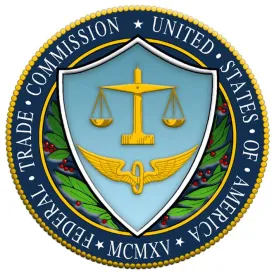On January 11, 2023, Elizabeth Wilkins, the FTC’s Director of the Office of Policy Planning, spoke to the Capitol Forum about the FTC’s proposed rule to ban non-compete agreements. This conversation was the most significant discussion of the proposed rule by the FTC since it was announced on January 5. Below are the four most salient takeaways.
-
The FTC recognizes this policy could potentially have far-reaching implications across industries and encompass “functional non-competes.” Wilkins explained that the proposed rule would apply to “all workers” who are “under the jurisdiction of the FTC,” whether an employee is paid, unpaid, or an independent contractor. Throughout the interview, Wilkins described how other types of agreements and restrictive covenants not included within the rule’s definition of a prohibited non-compete clause can be “functional non-compete[s]” covered by the rule. For one, though “ordinary” non-solicitation agreements would generally not be covered, they could potentially be prohibited by the rule if they are “so onerous” as to functionally prevent an employee from leaving the employer. Additionally, while they are generally not covered by the rule, training repayment agreements could also be covered where they are grossly “disproportionate” to the cost of the training.
-
The FTC is still defining the contours of the rule’s applicability, in part, based on public comments. When asked about borderline situations relating to training repayment agreements, Wilkins answered that the FTC “will look at the comment record to see if [the FTC] get[s] useful guidance from the public.”
-
The FTC believes the proposed rule fits squarely within its statutory authority under Section 5 of the Federal Trade Commission Act. Wilkins stated that the FTC has the power to make rules as to “unfair methods of competition,” and pointed to the agency’s subject-matter expertise in this area. Wilkins took the position that “far from not having authority, [the FTC] had a clear impetus” and potential obligation to deploy its rulemaking authority to address the “widespread competitive harms” caused by non-competes. The FTC has recently embraced a more expansive view of enforcement, targeting non-competes under its Section 5 powers which transcend traditional antitrust laws.
-
The FTC is unlikely to consider ancillary benefits to non-competes. According to Wilkins, nondisclosure agreements and trade secret protections are an “adequate substitute” for business owners seeking to replace non-competes prohibited by the rule. As such, the FTC is unlikely to acknowledge any benefits associated with non-competes or other restrictive covenants.
Ms. Wilkins’ statements reinforce the FTC’s heightened focus on targeting non-compete agreements, while providing businesses with some much-needed guidance as to how they might be affected. In the meantime, employers should ensure compliance with existing state laws and best practices for their use of non-competes.






 />i
/>i
